The Best Proven Bird Seed Food Choices For Happy Birds
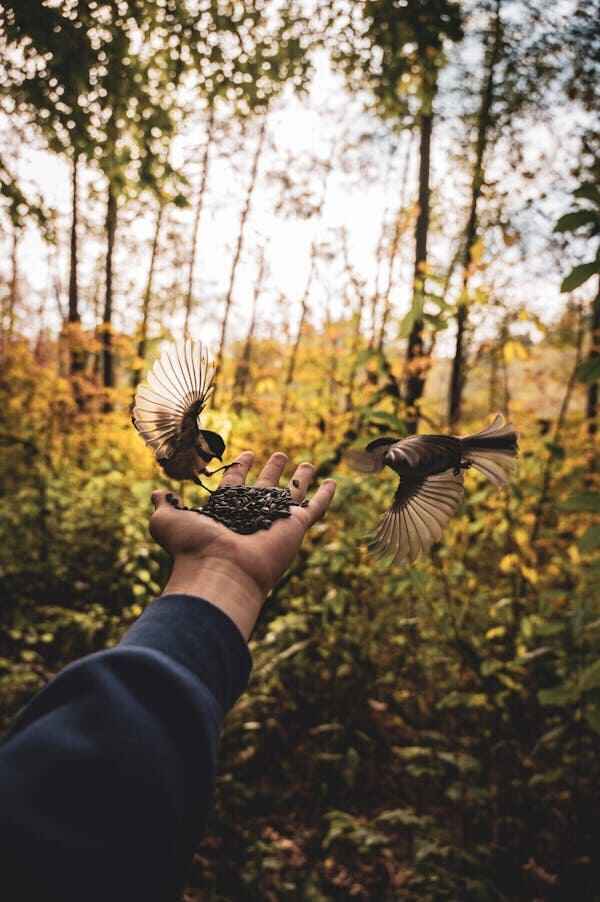
Table of Contents
Introduction
Unlock the secrets to vibrant bird life in your backyard or home with the right bird seed food choices! Whether you’re an avid birdwatcher hoping to attract colorful visitors to your yard or a devoted pet bird owner wanting to provide optimal nutrition, understanding bird seed food is essential for success.
Bird seed food refers to the various seeds, grains, and nuts that provide nutrition for birds. However, it’s important to recognize that “bird seed food” means drastically different things depending on whether we’re talking about wild backyard birds or pet companion birds. Wild birds need energy-rich options to thrive in natural environments, while pet birds require carefully balanced nutrition for long-term health in captivity.
In this comprehensive guide, we’ll explore both worlds: the diverse types of bird seed available, how to choose the best options for your specific situation, quality considerations, and much more. By the end, you’ll be equipped with expert knowledge to make informed decisions about bird seed food for any feathered friend in your life.
Understanding Bird Seed: The Basics
Bird seed food encompasses a variety of plant-based ingredients that provide energy and nutrition to birds. These typically include:
- Seeds: Including sunflower, safflower, and nyjer (thistle)
- Grains: Such as millet, cracked corn, and sorghum
- Nuts: Primarily peanuts, both in-shell and shelled
Different bird species have evolved to prefer specific seed types based on their beak structure, digestive capabilities, and natural feeding habits. For instance, birds with strong, thick bills like cardinals excel at cracking hard-shelled sunflower seeds, while finches with their more delicate beaks prefer tiny nyjer seeds.
Understanding these preferences is key to successful bird feeding, whether in your backyard or in your living room with a pet bird.
Bird Seed Food for WILD Birds
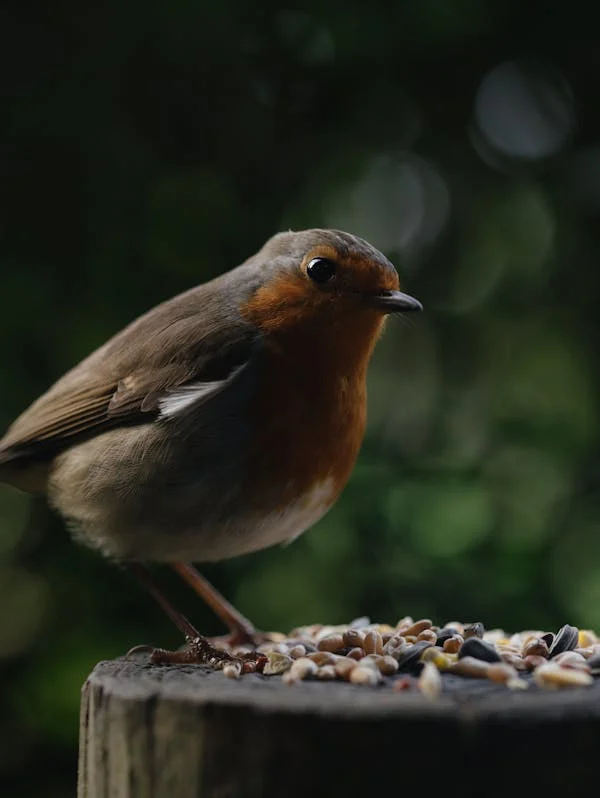
Why Feed Wild Birds?
Providing bird seed food for wild birds offers multiple benefits:
- Creates opportunities for birdwatching and nature connection
- Supplements natural food sources, especially during harsh weather
- Provides educational experiences for children and adults alike
- Supports local bird populations during seasonal challenges
- Brings joy and entertainment through observing bird behaviors
However, with this enjoyment comes responsibility—providing quality nutrition and maintaining clean feeding stations to support bird health.
Most Common Types of Wild Bird Seed
Black Oil Sunflower Seeds (BOSS)
The undisputed champion of bird seed, Black Oil Sunflower Seeds are widely considered the best all-around option for feeding wild birds. Their thin shells are easy for most birds to crack, and the kernels inside are rich in fat and protein.
Benefits:
- High in energy and nutritional value
- Attracts the widest variety of desirable birds
- Cost-effective due to high consumption rate
- Available year-round in most locations
Considerations:
- Creates shell debris below feeders
- May attract squirrels and other unwanted visitors
Striped Sunflower Seeds
These larger sunflower seeds have thicker, striped shells that are harder to crack.
Benefits:
- Preferred by larger birds with stronger bills (cardinals, grosbeaks, jays)
- Slower consumption rate than BOSS
- Less likely to sprout under feeders
Considerations:
- Many smaller birds cannot crack the shells
- More expensive per pound than BOSS
- Creates shell litter
Nyjer (Thistle) Seed
These tiny, black seeds are a specialty food highly prized by finches.
Benefits:
- Attracts goldfinches, siskins, and other small finches
- Less appealing to squirrels and larger birds
- High in oil content for energy
Considerations:
- Requires special feeders with tiny ports or mesh
- More expensive than many other seeds
- Can spoil quickly in humidity
Safflower Seed
White, slightly bitter seeds that have gained popularity for their selective appeal.
Benefits:
- Attracts cardinals, chickadees, and nuthatches
- Often avoided by squirrels and starlings
- Has a longer shelf life than many other seeds
Considerations:
- Some desirable birds may ignore it initially
- Harder shells that smaller birds struggle with
- More expensive than sunflower
White Proso Millet
Small, round seeds that are a staple in many bird seed mixes.
Benefits:
- Favored by ground-feeding birds like doves, sparrows, and juncos
- Inexpensive and readily available
- Quickly consumed with little waste
Considerations:
- Often scattered on the ground, potentially attracting rodents
- May sprout in wet conditions
- Less appealing to larger songbirds
Cracked Corn
Split corn kernels that appeal to a variety of ground-feeding birds.
Benefits:
- Attracts doves, quail, jays, and sparrows
- Very economical option
- Easily visible to birds
Considerations:
- Spoils quickly in damp conditions
- May attract unwanted visitors like raccoons
- Often used as filler in cheaper mixes
Peanuts (Whole & Shelled)
High-energy nuts that are eagerly consumed by many bird species.
Benefits:
- Excellent high-energy food, especially in winter
- Attracts woodpeckers, jays, chickadees, and titmice
- Great for specialized feeders
Considerations:
- Expensive compared to most seeds
- Can spoil in humid conditions
- Highly attractive to squirrels
Understanding Bird Seed Mixes
Pre-made bird seed mixes offer convenience but vary tremendously in quality.
Pros of quality mixes:
- Convenience of multiple seed types in one product
- Attracts diverse bird species with different preferences
- Can be specialized for specific birds or seasons
Cons of many commercial mixes:
- Often contain low-value “filler” seeds birds don’t eat
- May include red milo, wheat, and oats that many desirable songbirds ignore
- Can create waste and mess as birds discard unwanted components
What to look for in a quality mix:
- High percentage of Black Oil Sunflower Seeds
- Visible variety of recognized nutritious components
- Absence of excessive fillers
- Fresh, clean appearance without dust or debris
What to avoid:
- Mixes with large amounts of red milo (round reddish seeds)
- Excessive amounts of cracked corn (unless targeting specific birds)
- Bargain brands with unidentified “grain products”
- Dyed or artificially colored seeds
How to Choose the Right Seed for YOUR Backyard
Selecting bird seed should be tailored to your specific situation:
Based on birds you want to attract:
- Cardinals and grosbeaks: Sunflower seeds and safflower
- Finches: Nyjer seed and small sunflower chips
- Woodpeckers: Peanuts, suet, and sunflower
- Sparrows and juncos: Millet and finely cracked corn
- Doves and quail: Millet, cracked corn, and sunflower on ground platforms
Feeder type compatibility:
- Tube feeders: Sunflower seeds, safflower, nyjer (specialized)
- Hopper feeders: Sunflower, safflower, and quality mixes
- Platform feeders: Any seed type, best for larger seeds and mixes
- Sock/mesh feeders: Nyjer seed or small chips
Seasonal considerations:
- Winter: Higher fat content seeds (sunflower, peanuts)
- Spring/Summer: More variety to support nesting birds
- Migration periods: Increased quantity and variety
No-Mess options:
- Hulled sunflower kernels
- Shelled peanut pieces
- Pre-shelled seed mixes (more expensive but eliminate shells)
Budget considerations:
- Focus on one high-quality seed (BOSS) rather than cheap mixes
- Buy in bulk when possible for cost savings
- Consider seasonal sales and storage options
Storing Bird Seed
Proper storage protects your investment and bird health:
- Store in cool, dry location in rodent-proof containers
- Use airtight containers to prevent moisture and pests
- Purchase quantities you can use within 1-2 months
- Check regularly for signs of mold or pests
- Discard any seed that smells musty or appears clumped
Bird Seed Food for PET Birds
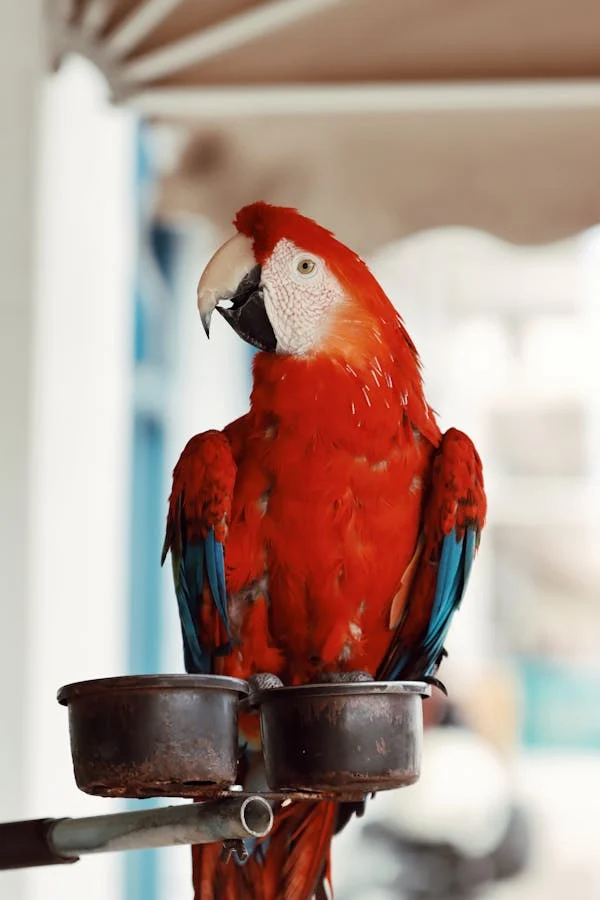
The Role of Seed in Pet Bird Diets
While wild birds can thrive on seeds alone, pet birds have substantially different nutritional needs. This is a critical distinction that many new bird owners don’t understand.
Important fact: All-seed diets are generally inappropriate for most pet birds, particularly parrots, cockatiels, and other psittacines. Seeds should typically comprise only 10-30% of most pet birds’ diets, with the remainder consisting of pellets, fresh vegetables, fruits, and other foods.
Seeds are naturally high in fat but deficient in many essential vitamins (particularly vitamin A), minerals (especially calcium), and amino acids that captive birds need for optimal health. In the wild, birds eat a vastly more varied diet than just seeds.
Common Seeds Offered to Pet Birds
Millet Spray:
- Popular with finches, canaries, budgies, and cockatiels
- Nutritional profile: Moderate protein (12%), high carbohydrate, relatively low fat
- Best used as: Occasional treat, training reward, foraging opportunity
Sunflower Seeds:
- Favored by many larger parrots
- Nutritional profile: High fat (40-50%), moderate protein
- Best used as: Occasional treat, training reward for larger birds
- Caution: Very addictive to birds, can lead to selective feeding
Safflower Seeds:
- Less fatty alternative to sunflower
- Nutritional profile: Moderate fat (38%), moderate protein
- Best used as: Limited part of diet for birds prone to obesity
Canary Seed:
- Standard for canaries, also accepted by finches
- Nutritional profile: Lower fat than many seeds, moderate protein
- Best used as: Part of balanced diet for canaries, finches
Hemp Seeds:
- Rich in essential fatty acids
- Nutritional profile: Good balance of omega fatty acids, moderate protein
- Best used as: Small component in diet for healthy feathers
DANGERS of Seed-Heavy Diets
Veterinary research has consistently shown that all-seed diets can lead to serious health issues in pet birds:
- Nutritional deficiencies: Particularly vitamin A deficiency leading to respiratory issues, poor feather quality, and susceptibility to infection
- Obesity: High fat content leads to excessive weight gain
- Fatty liver disease: Common in seed-addicted birds, can be fatal
- Shortened lifespan: Studies show pellet-based diets typically result in longer lifespans
- Reproductive issues: Poor nutrition affects breeding success and egg quality
- Behavioral problems: Nutritional deficiencies can exacerbate behavioral issues
According to avian veterinarians, seed-only diets are one of the most common causes of preventable health problems in pet birds.
Seeds as Part of a Balanced Diet
When used appropriately, seeds do have a place in pet bird nutrition:
- As training rewards and treats (high value to most birds)
- For foraging enrichment (hidden in toys or foraging devices)
- As medication vehicles when needed
- As supplemental nutrition alongside a pellet-based diet
- For specific species with higher seed requirements (finches, canaries)
Transitioning Pet Birds to Pellets & Fresh Foods
Many birds become “seed addicted” and resist dietary changes. Transitioning requires patience and persistence, but is essential for long-term health.
Key strategies include:
- Gradual introduction alongside familiar foods
- Morning offering of pellets when birds are hungriest
- Converting seeds to “dessert” after healthier options
- Various texture and presentation options
Wild Bird Seed vs. Pet Bird Seed: Key Differences Summarized
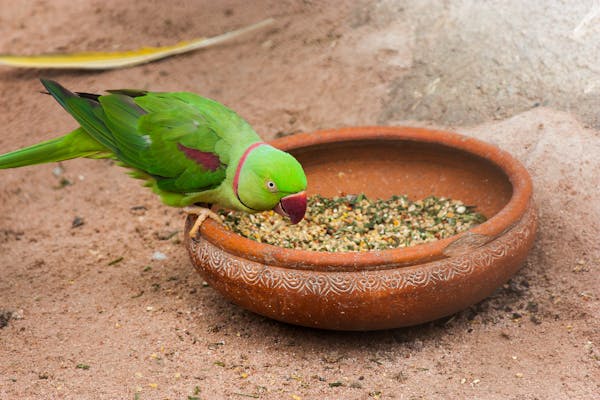
| Aspect | Wild Bird Seed | Pet Bird Seed |
|---|---|---|
| Primary Goal | Energy for survival, especially in harsh conditions | Long-term nutritional balance for health |
| Ideal Diet Composition | Can be primarily seeds | Should be minority component of diet |
| Fortification | Not typically fortified | Sometimes fortified with vitamins |
| Shelf Life Concerns | Moderate – outdoor conditions | High – directly impacts bird health |
| Quality Variance | Wide range from fillers to premium | Should always be high quality |
| Typical Components | Regional variations, seasonal options | Species-specific formulations |
Quality Matters: Choosing High-Quality Bird Seed
Whether for wild or pet birds, quality indicators remain consistent:
Signs of good quality:
- Clean appearance without excessive debris
- Minimal dust when poured
- Fresh, natural smell
- Uniform size and appearance
- Proper packaging with manufacturing date
- Stored properly at retailer
Signs of poor quality:
- Visible mold or discoloration
- Excessive dust or chaff
- Strange or rancid smell
- Evidence of insects or webs
- Clumping or moisture damage
- Unknown or excessive time in storage
Importance of reputable suppliers:
- Proper storage and inventory rotation
- Knowledge of product origins
- Appropriate handling practices
- Consistent quality control
Where to Find Bird Seed Food
Bird seed is widely available through various retail channels:
Specialty Wild Bird Stores:
- Highest quality selection
- Staff expertise
- Freshest inventory rotation
- Premium pricing
Garden Centers and Nurseries:
- Good selection of wild bird seed
- Seasonal availability
- Variable expertise
Pet Stores:
- Focus on pet bird seed and nutrition
- Both chain and independent options
- Variable quality and expertise
Online Retailers:
- Maximum convenience
- Wide selection
- Customer reviews
- Shipping may affect freshness
Feed Stores and Farm Supply:
- Economical bulk options
- Focus on staple seeds
- Variable quality control
Conclusion & Key Takeaways
Providing appropriate bird seed food—whether for wild visitors or beloved pets—requires understanding the distinct needs of each group. For wild birds, variety and energy content matter most, while pet birds need carefully balanced nutrition where seeds play only a partial role.
Remember these essential points:
- Black Oil Sunflower Seeds offer the best overall value for wild bird feeding
- Most pet birds should consume primarily pellets and fresh foods, with seeds as a minor component
- Quality matters tremendously for both wild and pet bird seed
- Proper storage ensures freshness and prevents potential health issues
- Understanding specific needs (species, season, location) leads to better outcomes
By making informed choices about bird seed food, you’re contributing to the health and wellbeing of feathered friends whether they’re visiting your backyard or sharing your home.
What’s your experience with bird seed? Have you noticed particular preferences among your backyard visitors or pet birds? Share your observations in the comments below and check out our related guides on bird feeding stations, seasonal feeding tips, and complete pet bird nutrition.
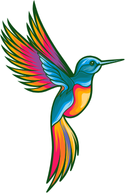
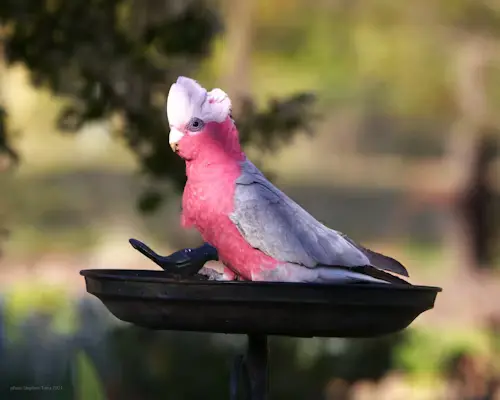
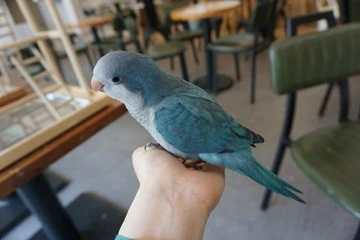
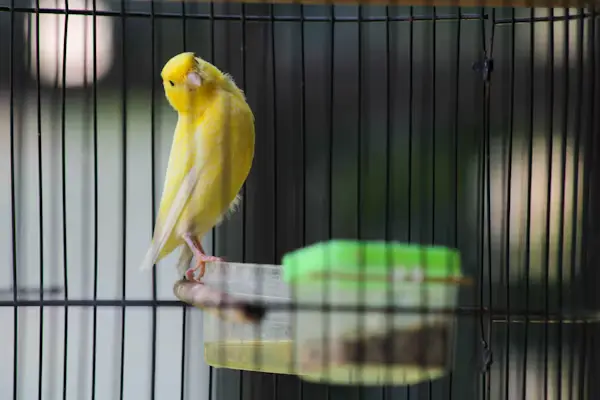
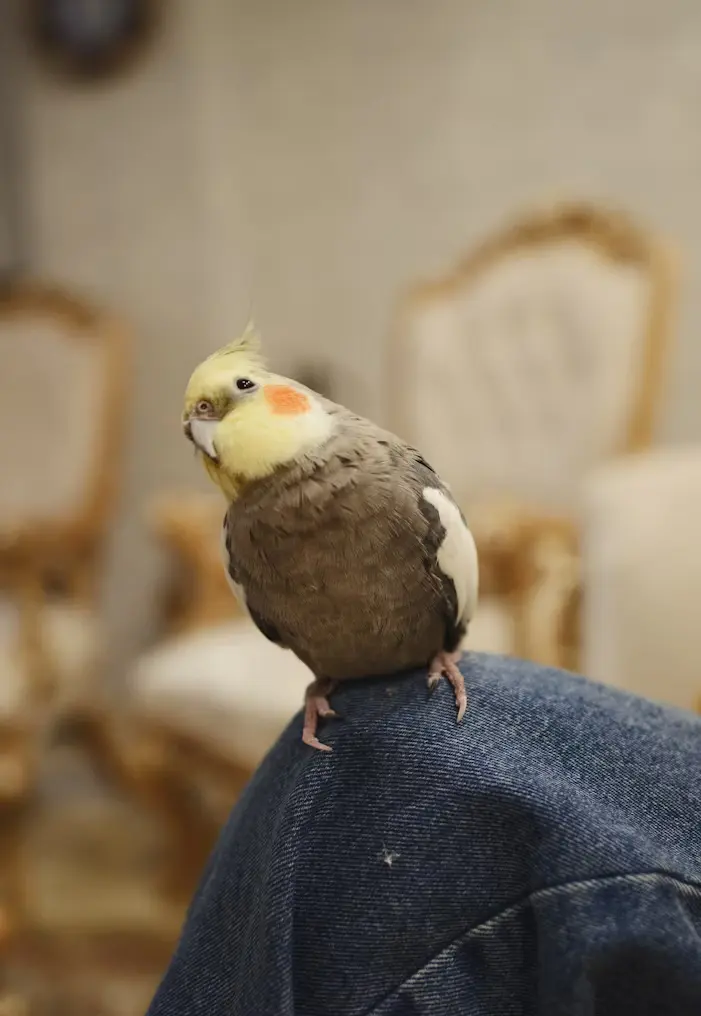
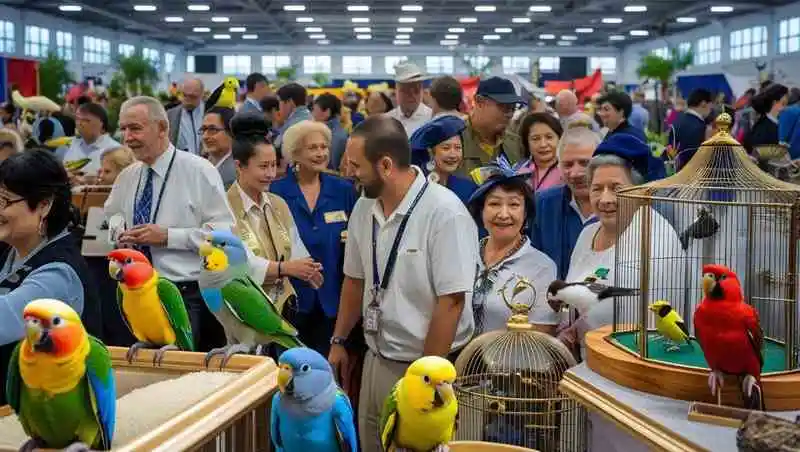

5 Comments